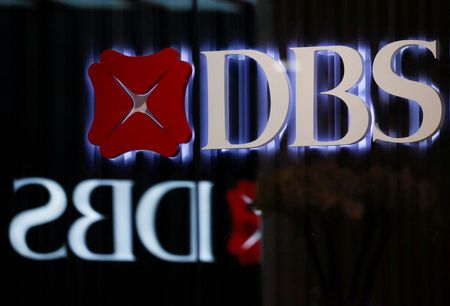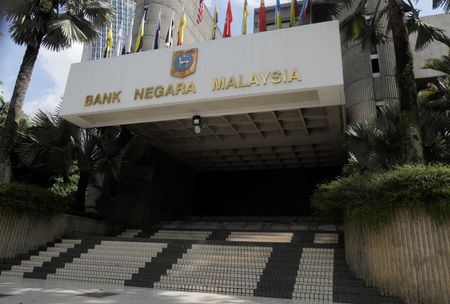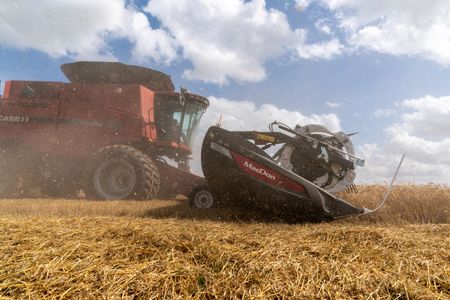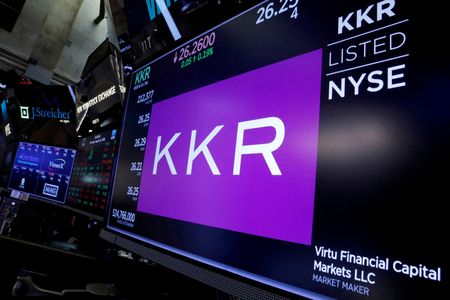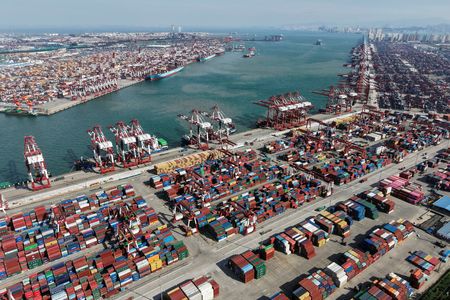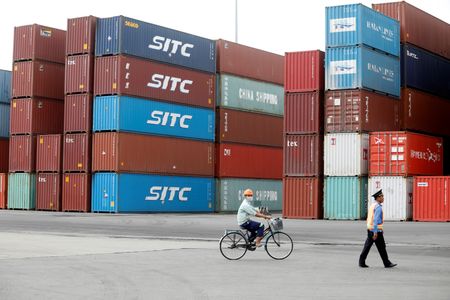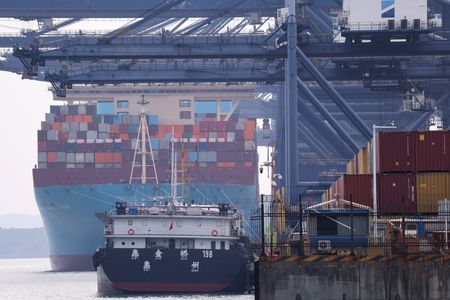By Yantoultra Ngui
SINGAPORE (Reuters) -Singapore’s DBS Group on Thursday reported better-than-expected earnings in the third quarter, sending its shares to a record high, while United Overseas Bank’s profit dropped after it booked hefty credit allowances.
DBS, Southeast Asia’s biggest lender, posted a 2% drop in third-quarter earnings to S$2.95 billion ($2.26 billion), beating analysts’ estimates of S$2.72 billion.
Total income rose 3% to a record S$5.93 billion, supported by wealth and deposit growth, even as its net interest margin, a key profitability gauge, fell to 1.96% from 2.11% a year earlier.
DBS shares rose nearly 3.4% to an all-time high of S$55.30, while UOB dropped almost 3.2%. The domestic benchmark index was 1.3% higher on Thursday.
“I will say that Q3 was a solid quarter,” DBS Group CEO Tan Su Shan said during a briefing. “I think the team delivered a solid quarter in spite of very strong interest rate headwinds, especially in Singapore.”
DBS reaffirmed its S$8 billion capital return plan – which runs through 2027 – that includes S$3 billion in share buybacks and S$5 billion in capital-return dividends. About 15% of the programme has been completed.
The bank’s board declared a total dividend of 75 Singapore cents a share for the quarter, up from 54 cents a year earlier, comprising an ordinary dividend of 60 cents and a capital-return dividend of 15 cents.
UOB, Southeast Asia’s third-largest bank, reported a 72% plunge in July-September net profit to S$443 million ($342 million) from S$1.61 billion a year earlier, missing the mean estimate of S$1.35 billion.
Its net interest margin fell to 1.82% in the third quarter from 2.05% a year earlier.
The bank booked S$1.36 billion in credit allowances, including S$615 million in pre-emptive provisions, to strengthen its buffers amid economic uncertainty and sector-specific stress in markets such as Greater China and the U.S. The move lifted coverage on performing loans to 1% and pushed total credit costs to 134 basis points for the quarter.
“Actually the provision is very positive and it’s quite evolved, because we are buying insurance,” CEO Wee Ee Cheong said at a briefing, adding that some stress was related to secured commercial real estate exposures where the bank is seeking to avoid forced sales.
“We are taking a view here to make sure that our balance sheet continues to be strong,” he added. “It’s no different than during COVID, when we set aside S$3 billion to help our customers. That will give the market the confidence. And then we give ourselves time to react, to recover.”
CGS International analysts Tay Wee Kuang and Lim Siew Khee said the hefty allowances lifted credit costs to 174 basis points, driven by exposure to U.S. and Hong Kong commercial real estate, but noted the move was pre-emptive and aimed at strengthening coverage to 1%.
They said they expected costs to normalize to 25 to 30 basis points next year.
DBS expects its 2026 net profit to be slightly below that of 2025. UOB expects its 2026 net interest margin to be between 1.75% and 1.80%, below 2025’s projected 1.85% to 1.90%.
Both banks’ results come after mixed results from global peers last week.
HSBC posted a 14% drop in third-quarter pretax profit after a $1.4 billion litigation charge tied to the Bernard Madoff fraud, while Standard Chartered beat estimates with a 3% rise in profit, helped by record wealth income and strong markets activity.
($1 = 1.2942 Singapore dollars)
(Reporting by Yantoultra Ngui; Additional reporting by Himanshi Akhand in Bengaluru, Editing by Chris Reese, Sam Holmes and Thomas Derpinghaus)

